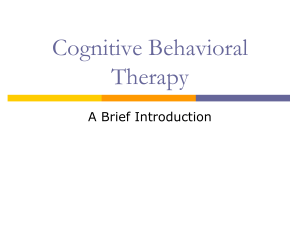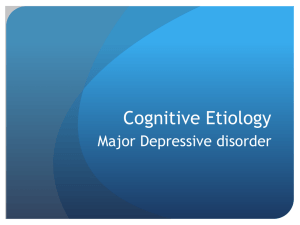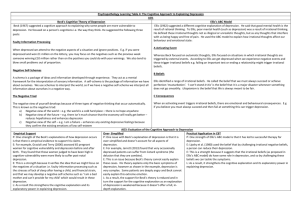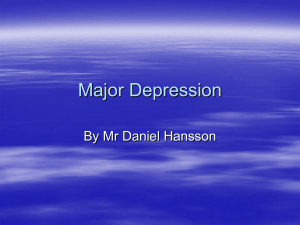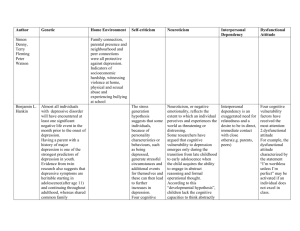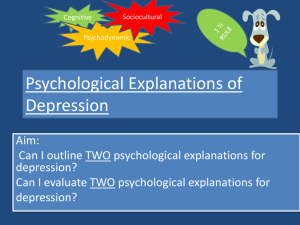Evaluation of the Cognitive Approach to explaining Depression
advertisement
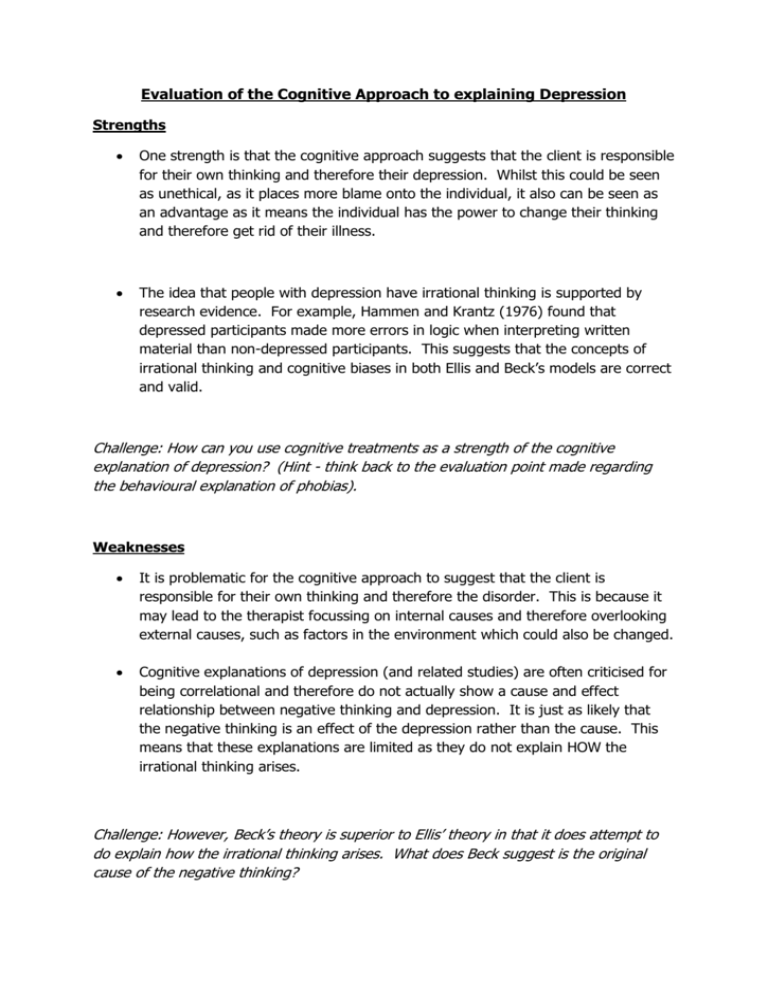
Evaluation of the Cognitive Approach to explaining Depression Strengths One strength is that the cognitive approach suggests that the client is responsible for their own thinking and therefore their depression. Whilst this could be seen as unethical, as it places more blame onto the individual, it also can be seen as an advantage as it means the individual has the power to change their thinking and therefore get rid of their illness. The idea that people with depression have irrational thinking is supported by research evidence. For example, Hammen and Krantz (1976) found that depressed participants made more errors in logic when interpreting written material than non-depressed participants. This suggests that the concepts of irrational thinking and cognitive biases in both Ellis and Beck’s models are correct and valid. Challenge: How can you use cognitive treatments as a strength of the cognitive explanation of depression? (Hint - think back to the evaluation point made regarding the behavioural explanation of phobias). Weaknesses It is problematic for the cognitive approach to suggest that the client is responsible for their own thinking and therefore the disorder. This is because it may lead to the therapist focussing on internal causes and therefore overlooking external causes, such as factors in the environment which could also be changed. Cognitive explanations of depression (and related studies) are often criticised for being correlational and therefore do not actually show a cause and effect relationship between negative thinking and depression. It is just as likely that the negative thinking is an effect of the depression rather than the cause. This means that these explanations are limited as they do not explain HOW the irrational thinking arises. Challenge: However, Beck’s theory is superior to Ellis’ theory in that it does attempt to do explain how the irrational thinking arises. What does Beck suggest is the original cause of the negative thinking?
